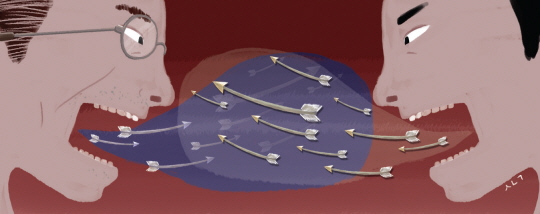In Korea as in many other parts of the world, efforts are made to conscientize world citizens on global warming and climate change. In a diocesan bulletin a parish priest, the head of an enviromental committee in the diocese writes about the issue for the readers on what we can do right now.
This year we saw little snow and real cold weather. Many think it's the results of global warming. However, the fact is that in America and Europe, they experienced heavy snowfall and cold weather like nothing in the past. Those who argue that global warming and the dangers of climate change are spurious continue to forment controversy.
However, everyone is aware that the current situation is very different from the situation we knew in the past. Climate scientists argue that what we experienced in the past and the different situations of the present in the global ecosystem are proof of climate instability caused by global warming. In Belgium, high school students have gained the attention of the world by absenting themselves from school and demanding a proper response to global warming and consequently climate change.
One student who participated in the protest said in an interview with the press: "The adults left us a broken earth. It's our job to change it. Adults can not do it, but we can. We have the spirit to change the climate and change everything."
What can we do? Unexpectedly small changes can change the world. Walk for health and use public transportation, do not use elevators when not difficult, turn off lights in unused spaces, use energy-efficient products. Keeping the right temperature in summer and winter, wearing warm underclothes in the winter, refusing disposables and have the habit of using a personal cup (tumbler) will help cope with global warming by reducing carbon emissions.
Also, do not purchase over-packaged products, use a shopping bag to buy the least-packaged or completely unpackaged food, cook with fresh ingredients instead of packaged fast food. We can solve the microplastic problems, save energy, respond to climate change, and start dealing with the hunger problems that arise around the world.
Fast food consumption must be reduced if we are to protect the local areas that produce the food, and reduce the cutting down of trees. Multinational corporations and their household goods and foodstuffs consume enormous amounts of energy, and are burdensome to the environment in their distribution. Using food products produced in the area where we live will protect the ecosystem and prevent the occurrence of environmental refugees. Farm markets in these areas are a good response to global warming and help environmental refugees.
The pros and cons of global warming are far from obvious, considered more a political issue than ecological by many. Fear of what it will do to the economy. However, the efforts to work towards a minimal or a simpler life style may not only be healthy for the environment but good for the psyche now and in the future.
This year we saw little snow and real cold weather. Many think it's the results of global warming. However, the fact is that in America and Europe, they experienced heavy snowfall and cold weather like nothing in the past. Those who argue that global warming and the dangers of climate change are spurious continue to forment controversy.
However, everyone is aware that the current situation is very different from the situation we knew in the past. Climate scientists argue that what we experienced in the past and the different situations of the present in the global ecosystem are proof of climate instability caused by global warming. In Belgium, high school students have gained the attention of the world by absenting themselves from school and demanding a proper response to global warming and consequently climate change.
One student who participated in the protest said in an interview with the press: "The adults left us a broken earth. It's our job to change it. Adults can not do it, but we can. We have the spirit to change the climate and change everything."
What can we do? Unexpectedly small changes can change the world. Walk for health and use public transportation, do not use elevators when not difficult, turn off lights in unused spaces, use energy-efficient products. Keeping the right temperature in summer and winter, wearing warm underclothes in the winter, refusing disposables and have the habit of using a personal cup (tumbler) will help cope with global warming by reducing carbon emissions.
Also, do not purchase over-packaged products, use a shopping bag to buy the least-packaged or completely unpackaged food, cook with fresh ingredients instead of packaged fast food. We can solve the microplastic problems, save energy, respond to climate change, and start dealing with the hunger problems that arise around the world.
Fast food consumption must be reduced if we are to protect the local areas that produce the food, and reduce the cutting down of trees. Multinational corporations and their household goods and foodstuffs consume enormous amounts of energy, and are burdensome to the environment in their distribution. Using food products produced in the area where we live will protect the ecosystem and prevent the occurrence of environmental refugees. Farm markets in these areas are a good response to global warming and help environmental refugees.
The pros and cons of global warming are far from obvious, considered more a political issue than ecological by many. Fear of what it will do to the economy. However, the efforts to work towards a minimal or a simpler life style may not only be healthy for the environment but good for the psyche now and in the future.






